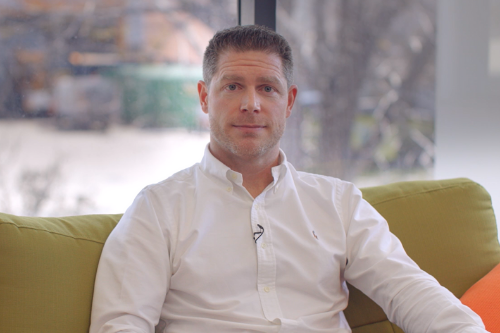

Over two decades working as an insurance recruitment specialist, Maxwell Stone Consulting director Wayne Clark (pictured) has heard the same observation over and over again, which is that not enough is being done to attract insurance talent, particularly in broking.
“I did a presentation to the Chartered Insurance Institute back in the UK probably almost 20 years ago, and the topic that I addressed was how the insurance industry wasn’t doing enough to bring new talent through within the whole commercial insurance sector,” recalled Brisbane-based Clark, who relocated to Australia a decade ago. “It’s quite funny because 20 years on we’re still having exactly the same conversation.
“From what I’m seeing, I would suggest that there’s at least six opportunities for every one candidate with any sort of commercial broking experience, and there’s probably more. I’m just basing on what I’m seeing, and obviously I’m working with clients I choose to work with rather than everyone, but there are certainly a lot more jobs than there are candidates.”
Clark – who helped build British insurance recruitment agency IDEX Consulting prior to his move Down Under – conceded, though, that it’s “a good problem to have,” if compared to where we were just after the pandemic hit when there was very little opportunity for insurance executives. The challenge now, he said, lies in making a company’s opportunity more attractive to potential candidates than the other opportunities that are available.
“What you’re looking at then – and this is what we’ve seen as a big change over the post-COVID period – is people’s expectations around flexibility,” Clark told Insurance Business. “Quite an interesting conversation that I had with someone was around them asking about the working-from-home flexibility. And then they extended the question by saying that it’s not necessarily about them wanting to work from home all the time, but it’s about giving you an indication of whether the business is one that’s adaptable and flexible and trusts staff, etc.
“These are questions that pre-COVID we weren’t being asked. Now there’s this very strong significant focus on, ‘Okay, what’s the policy around if I’ve got children and I need to work from home one day or I need to come in late one day, and I can make up the time after work’ and so on.”
The Maxwell Stone boss, who prefers working with SME brokerages, added: “If you’re a smaller business, the focus in order to be able to grow and be able to achieve the business goals that you may have as part of that growth, is to really look at your offering. No-one knows what’s going to happen further down the track, but certainly for the time being, you kind of need to be as flexible as possible because the current market is very candidate-driven.”
According to Clark, in all his years in insurance recruitment, the common view has been that there just isn’t enough talent coming through. He believes part of the trend can be attributed to the lack of market entrants via the graduate scheme route.
“The top five global accounting firms take on many thousands of graduate trainees every year in Australia, and it’s an important part of the talent cycle for their industry,” noted Clark. “Whereas the largest insurance firms take on a tiny fraction of these numbers by comparison, and only a few people enter the industry this way.”
The recruitment expert went on to state: “It’s a difficult market in terms of finding the right type of people. Brokers have to be quite charismatic or solutions-oriented; they have to be ‘people’ people and so on. And then they’ve got to have that technical capacity as well. So, it’s always hard to find those types of people, and there’s nothing to suggest it’s going to get any easier.”
That is not to say, however, that Clark is not up to the challenge.
He told Insurance Business: “Historically, the biggest challenge for an insurance recruiter, in my opinion, is trying to work with firms that don’t really understand the value of partnering with you – because the closer that they partner with you, the better you can do your job. Effectively what a recruiter is doing is selling the opportunity, more often than not, to a passive candidate, so someone that’s not actively looking for a new job.
“I’m going to them and saying, ‘Hey, I’ve got this great opportunity and this is why it’s great’. The more I know about a business, the better job I can do at generating interest with the best candidates for that business. That, historically, is the biggest challenge. At the moment, the biggest challenge – because it’s so competitive for good people – is delivering and finding the people for the jobs.”
